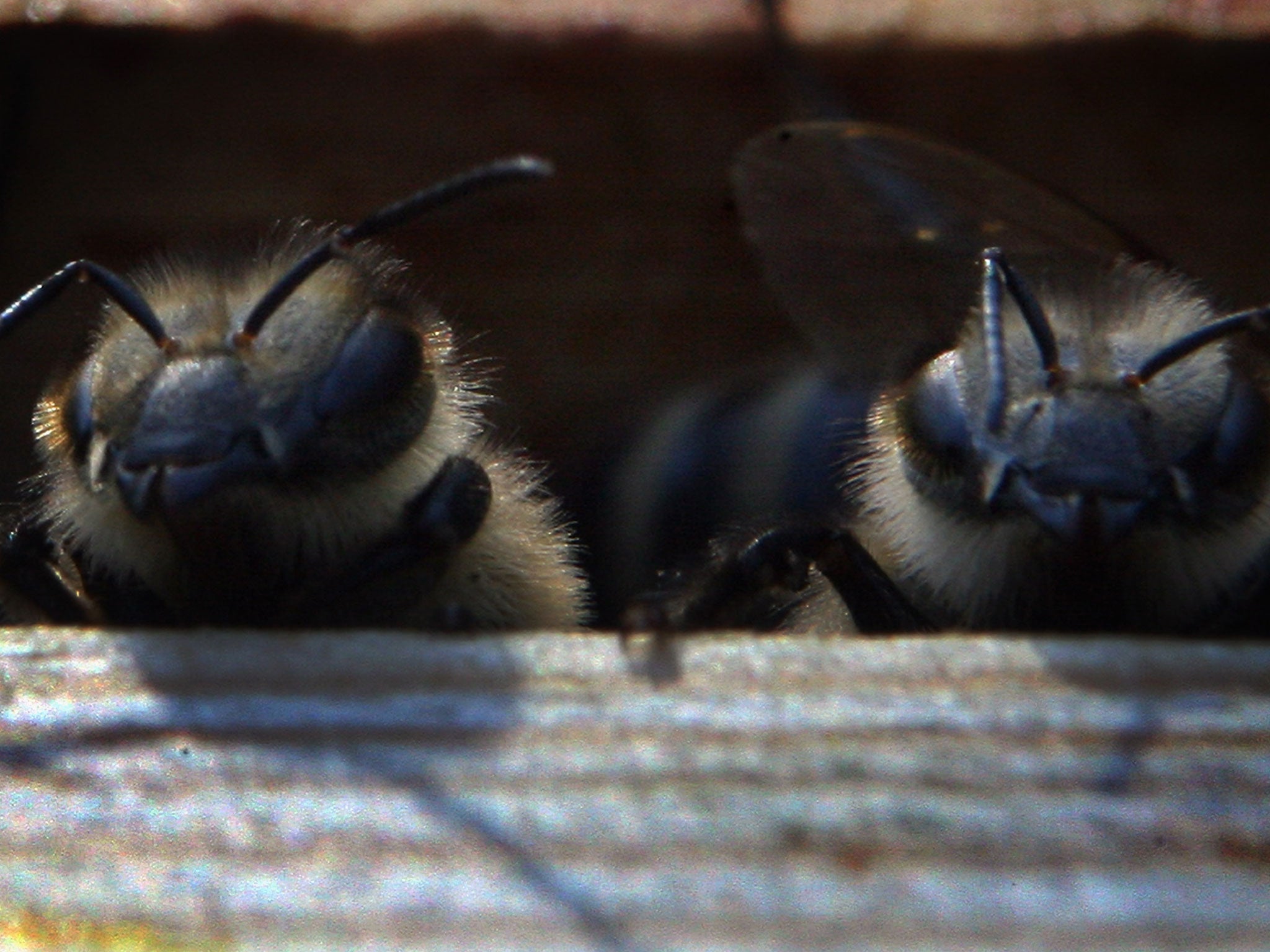Paperback reviews: The Bees, Elizabeth Alone, Inheritance, Stuffocation, I Never Knew That About the Scottish
Laline Paull's bee characters remain a bit creepy in her superb novel

The Bees by Laline Paull (Fourth Estate, £8.99)
There have been attempts before to imaginatively inhabit the world of other animals in novels, but with only a few notable exceptions – The Call of the Wild, Watership Down – they are hard to take too seriously. The difficulty always is how to tread the line between anthropomorphism and naturalism. Laline Paull certainly set the bar high for herself by choosing bees as the dramatis personae of her novel. It took me about 100 pages to be convinced.
The story centres around Flora, a humble sanitation worker, who, by a series of chance events, gets to meet the Queen and feel her love at first-hand, and is then chosen to be a forager – which means that she can fly from the hive searching for nectar, instead of just cleaning up all the time. She also proves her mettle fighting wasps, and there’s a love interest in the form of the dapper, dandified drone Sir Linden ... I read at first with a kind of amused detachment, noting the occasions when the bees performed incongruously human actions – smiling, coughing and so forth – but the more I read, the more absorbed I became, and the more seriously I took the life-and-death struggles of these insects.
Paull has clearly done her homework: the Hive is a fully realised social world, with its own hierarchy, laws, priesthood, police force, and even canteens. The bees communicate not only by speech but by dancing, smell, and their telepathic antennae, as well as shared access to the Hive Mind. They are anthropomorphised just enough to be relatable to, and bee-like enough to remain strange, fascinating and slightly creepy. There’s sex, violence, war, catastrophe, terror, secrets, and suspense. A clever and imaginative work: I don’t expect I’ll come across a more unusual heroine than Flora this year.
*****
Elizabeth Alone by William Trevor (Penguin, £8.99)
Elizabeth Aidallberry – 41, divorced, with her eldest child about to enter a dodgy commune, and her childhood sweetheart, Henry, whom she doesn’t love, only pities, set on marrying her – goes into hospital for a hysterectomy. She is in a kind of emotional limbo, not sure who she is or what she wants from life. The three other women in the ward also have problems in addition to their medical ones: one has a disfiguring birthmark and a shaky religious faith; another has a thoroughly dishonest and unreliable boyfriend; another has in-laws from hell. Gradually, these women form a tenuous emotional bond. Aficionados of Trevor’s short stories will recognise in this re-issue of his 1973 novel many of his usual themes: the lives of quiet desperation, the sense of isolation, the presentness of the past, the bleak humour. The problems these people face are petty, banal, yet soul-sapping: they suffer from acne, money worries, bad teeth, job insecurities. Trevor’s writing is always compassionate, yet it’s a stern compassion, urging fortitude and endurance.
****
Inheritance by Dr Sharon Moalem (Sceptre, £9.99)
In this accessible introduction to how genetic inheritance works, Moalem stresses that the genes we get at birth don’t lumber us with fixed characteristics. Instead, the way those genes are expressed is constantly being modified by our environment. Thus diet, lifestyle, and medical intervention can alter our genome, which is “not a completed book already written, edited and published”, but rather a story that is still being told. The folksy, journalistic style is slightly irritating, as is Moalem’s stance that everything he’s saying challenges the conventional view, when really his thesis is quite uncontroversial. But it’s full of interesting stories, and convincingly optimistic about what modern medicine may be able to achieve.
***
Stuffocation by James Wallman (Penguin, £9.99)
James Wallman’s contention that we, from wealthy nations, have too much stuff in our homes and lives is not an entirely original one, but it’s clearly argued and contains plenty of interesting case studies. Wallman sees the phenomenon of extreme hoarding as one end of a continuum that we’re all on. His solution, though, is not ultra-minimalism, but what he calls “experientialism”: when buying things for ourselves or others we should “[choose] experiences over material goods”. Sounds like good sense. The only problem with the book is that it’s a bit repetitive. It tends to make the same point over and over. It re-states the same ideas in slightly different words.
***
I Never Knew That About the Scottish by Christopher Winn (Ebury Press, £8.99)
The title lives up to its promise: there are loads of things here that I didn’t know about the Scottish. Each chapter focuses on a region, and the principle families and notable individuals associated with it, illustrated with line drawings of castles and mostly bearded men. Throughout the ages, but in the 19th century particularly, Scotland has produced an astonishing range of high achievers, in the fields of science, art, medicine, exploration, invention, politics, philosophy, and literature, as well as their fair share of grisly crimes: one Scottish laird acquired the lands of another by roasting him over a slow fire until he agreed to sign over the deeds. A great book for dipping into, whether you’re Scottish or not.
****
Subscribe to Independent Premium to bookmark this article
Want to bookmark your favourite articles and stories to read or reference later? Start your Independent Premium subscription today.

Join our commenting forum
Join thought-provoking conversations, follow other Independent readers and see their replies